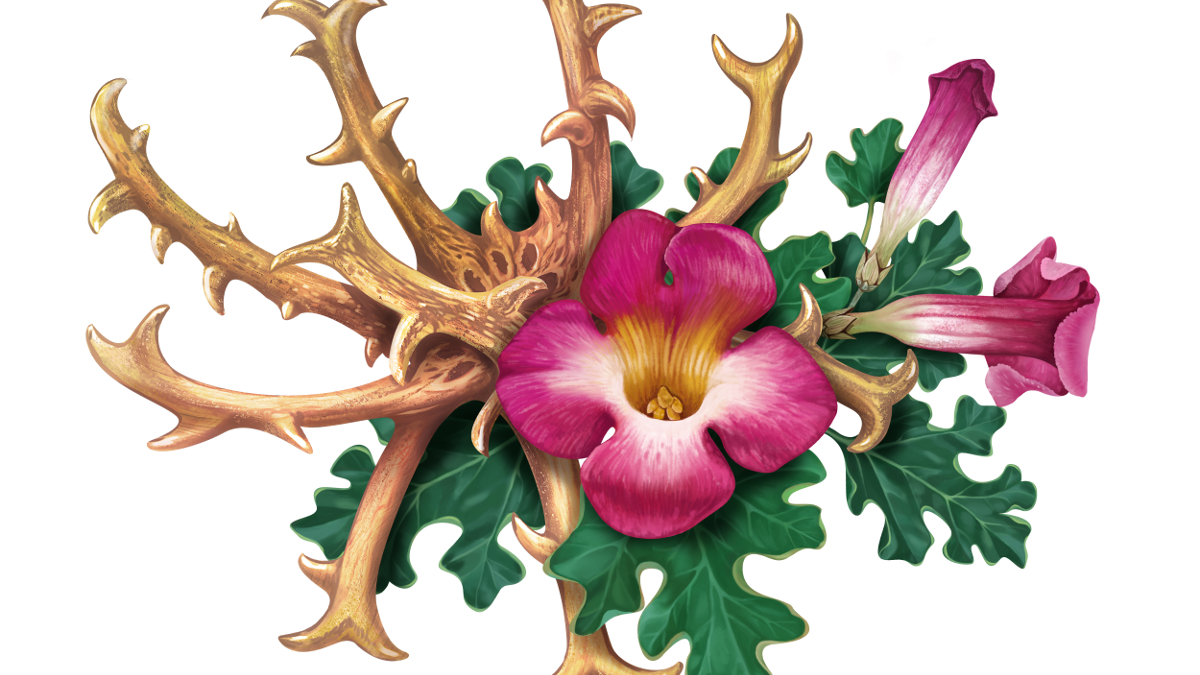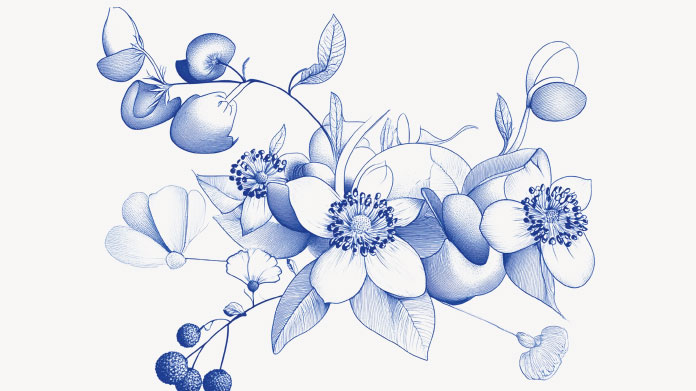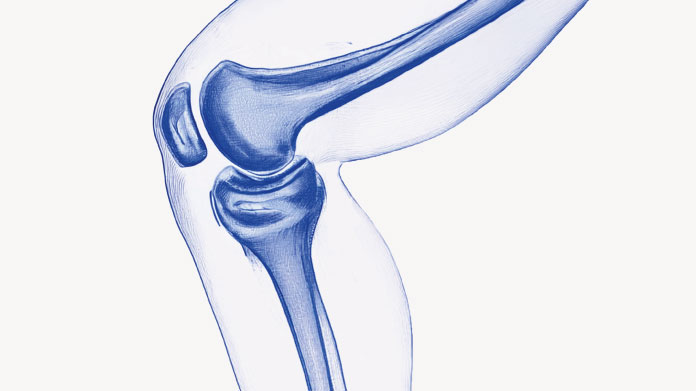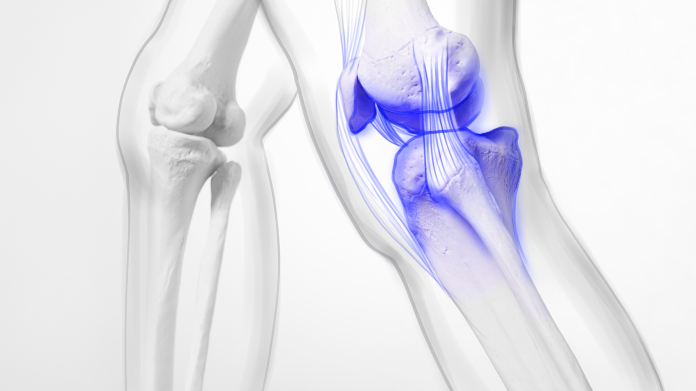3 benefits of Harpagophytum , the plant that supports joint health
Have you heard of this African plant, commonly known as ‘devil’s claw’ ? Discover how Harpagophytum supports the health of your joints, amongst other benefits.

What exactly is Harpagophytum?
This somewhat complex-sounding plant is better known as ‘devil’s claw’ or ‘grapple plant’. Part of the Pedaliaceae or sesame family, Harpagophytum South Africa and Madagascar.
The proven benefits of the plant come from its deep roots which contain calcium, iron, copper, vitamin C, vitamin A, and potassium along with many other active ingredients.
A plant recognised for maintaining good joint health
First and foremost, several clinical trials have shown that Harpagophytum supports healthy joint function (1). Remarkably, a comparative study of 122 subjects suggests that devil’s claw is almost as effective as a drug used to treat osteoarthritis (diacerein) (2-3).
Similarly, a two-month UK trial of 259 patients found that taking Harpagophytum resulted in a significant reduction in joint discomfort (4). Indeed, ESCOP, (the European Scientific Cooperative on Phytotherapy) recommends taking devil’s claw to help maintain joint health and flexibility.
This plant is also believed to ease discomfort in the lower back (5-6).
Harpagophytum may help to stimulate both appetite… and the feeling of satiety
It has also been suggested that Harpagophytum helps to restore appetite… as well as increase the sensation of satiety. This may be due to its potential interaction with the hunger hormone (7).
One study showed that mice given powdered devil’s claw tended to eat less food than those given a placebo (8). Harpagophytum is thus sometimes used to support weight management and even to prevent obesity (9).
Devil’s claw may play a role in ensuring a healthy digestive system
Bid farewell to constipation, diarrhoea and flatulence! Clinical trials suggest that extracts of devil’s claw may significantly reduce - and even eliminate - digestive discomfort (10). It may thus help improve digestion and facilitate healthy elimination of waste products.
Harpagophytum may improve nutrient absorption in the gut, too. It is also traditionally used to help reduce cholesterol (11). Last but not least, devil’s claw may also have antioxidant properties, and may therefore contribute to delayed ageing of cells (12).
Some supplements formulated to support joint health
Is your quality of life adversely affected by joint or muscle pain? Are you keen to find effective, natural relief? Then try Super Harpagophytum. This natural dietary supplement will help to both maintain the health of your joints and combat oxidative stress.
In addition, you could combine it with Super Boswellia. This Boswellia serrata supplement, standardised to 20% AKBA (its most active ingredient), also plays an active part in maintaining joint health.
You can, of course, always opt for a joint-specific formulation such as Joint Support Formula, which combines chondroitin and marine-source glucosamine.
Note: there are, however, certain contraindications for this supplement. Those suffering from diabetes, high blood pressure, stomach ulcers or gallstones should not take Harpagophytum. The same applies to women who are pregnant or breastfeeding.
References
- Devil's Claw (Harpagophytum procumbens) as a treatment for osteoarthritis: a review of efficacy and safety. Brien S, Lewith GT, McGregor G. J AlternComplement Med. 2006 Dec;12(10):981-93. Review.
- Chantre P, Cappelaere A, et al. Efficacy and tolerance of Harpagophytum procumbens versus diacerhein in treatment of osteoarthritis. Phytomedicine. 2000 Jun,7
- Efficacy and Tolerance of Harpagophytum Procumbens Versus Diacerhein in Treatment of Osteoarthritis, P Chantre 1, A Cappelaere, D Leblan, D Guedon, J Vandermander, B Fournie, 2000 Jun 7
- Effectiveness and safety of Devil's Claw tablets in patients with general rheumatic disorders Mary Warnock Douglas McBean Andreas Suter Jen Tan Patricia Whittaker 20 September 2007
- https://www.lombalgie.fr/comprendre/quelques-chiffres/
- Chrubasik S, Junck H, et al. Effectiveness of Harpagophytum extract WS 1531 in the treatment of exacerbation of low back pain: a randomized, placebo-controlled, double-blind study.Eur J Anaesthesiol 1999 Feb,16
- Devil's Claw to Suppress Appetite—Ghrelin Receptor Modulation Potential of a Harpagophytum procumbens Root Extract, Cristina Torres-Fuentes, Wessel F. Theeuwes, Michael K. McMullen, Anna K. McMullen, Timothy G. Dinan, John F. Cryan, and Harriët Schellekens, 2014 Jul 28.
- The Role of Leptin and Ghrelin in the Regulation of Food Intake and Body Weight in Humans: A Review, M D Klok, S Jakobsdottir, M L Drent, 2007 Jan,8
- Devil's Claw to Suppress Appetite—Ghrelin Receptor Modulation Potential of a Harpagophytum procumbens Root Extract, Cristina Torres-Fuentes, Wessel F. Theeuwes, Michael K. McMullen , Anna K. McMullen, Timothy G. Dinan , John F. Cryan, and Harriët Schellekens, 2014 Jul 28.
- European Scientific Cooperative on Phytotherapy (Ed). Harpagophyti radix, ESCOP Monographs on the Medicinal Uses of Plants Drugs, Centre for Complementary Health Studies, Université d'Exeter, Grande-Bretagne, 1996.
- Sécurité des patients et protection des plantes médicinales : lignes directrices destinées à une industrie qui vaut 60 milliards de dollars, 10 FÉVRIER 2004
- Antioxidant Activity and Bioactive Constituents of the Aerial Parts of Harpagophytum Procumbens Plants, 15 Apr 2014
Keywords
5 Days
great products and prices
great products and prices
Marie
11 Days
Easy to navigate site
Easy to navigate site, had what I was searching for, good price. easy order-check out
James Tucker
17 Days
My skin is clearing up nicely!
Pretty good for my skin so far.
Christian
19 Days
The new packaging is excellent
The new packaging is excellent - finally! No more squashed boxes and torn envelopes.
GORAN
20 Days
Great Product
Great Product
Larry Garrett
25 Days
Quick shipping
Quick shipping; good price. No issues!
Mary McCarty
26 Days
Thr product is very good and is helping…
Thr product is very good and is helping me on my health. Then is always on time
LUGO Luz
29 Days
Buying was fine
Buying was fine. I had problems with the website not recognizing my login info, and had to call to get it fixed. Other than that, everything was good.
David S. Clark
29 Days
Your super maca and super ginseng are…phenomenal
Your super maca and super ginseng are phenomenal supplements that compliment each other when taking them together. Fantastic feeling of well-being and lots of mid day energy without the crash.
Keith Mason
32 Days
I have had amazing results with every…
I have had amazing results with every supplement I've purchased. I am extremely satisfied with this company
kirstin Torres
32 Days
Fine products
Fine products . They are on the leading edge of online supplements. The only issue -so far-is they sometime run out of subscription items.
Jason Argos
34 Days
The ordering process is very user…
The ordering process is very user friendly and the products always come in a timely manner.
CARTER Rhonda
36 Days
The price for Dr
The price for Dr. Pero's AC-11 is reasonable and in line with his views. (my former colleague). Keep it pure.
CAMPBELL Clayton
38 Days
Right on every time.
Right on every time.
Arthur Nicholas
41 Days
They are cheaper than everyone else and…
They are cheaper than everyone else and the shipping was fast. Great company.
Patricia Adams




